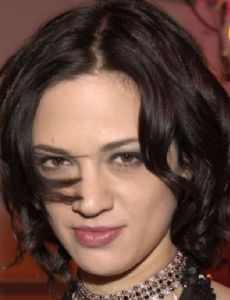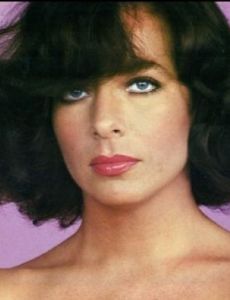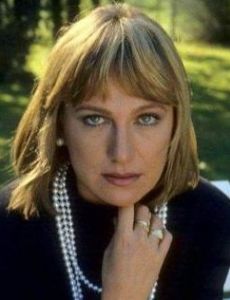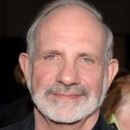Dario Argento (Italian: [ˈdaːrjo arˈdʒɛnto]; born 7 September 1940) is an Italian filmmaker and critic. His influential work in the horror genre during the 1970's and 1980's, particularly in the subgenre known as giallo has led him to being referred to as the "Master of the Thrill" and the "Master of Horror".
Personal Life
editSpouse(s) Marisa Casale (1968–1972; divorced)
Partner(s) Daria Nicolodi (1974–1985)
Children 2 (including Asia Argento)
Relatives Claudio Argento (brother)
Dario Argento Filmmaker - Born September 7, 1940 in Rome, Lazio, Italy
Nickname Master of Horror
Height 5' 8" (1.73 m)
Mini Bio (2) Dario Argento was born on September 7, 1940, in Rome, Italy, the first-born son of famed Italian producer Salvatore Argento and Brazilian fashion model Elda Luxardo. Argento recalls getting his ideas for filmmaking from his close-knit family from Italian folk tales told by his parents and other family members, including an aunt who told him frighting bedtime stories. Argento based most of his thriller movies on childhood trauma, yet his own--according to him--was a normal one. Along with tales spun by his aunt, Argento was impressed by stories from The Grimm Brothers, Hans Christian Andersen and Edgar Allan Poe. Argento started his career writing for various film journal magazines while still in his teens attending a Catholic high school. After graduation, instead of going to college, Argento took a job as a columnist for the Rome daily newspaper "Paese Sera". Inspired by the movies, he later found work as a screenwriter and wrote several screenplays for a number of films, but the most important were his western collaborations, which included Cemetery Without Crosses (1969) and the Sergio Leone masterpiece Once Upon a Time in the West (1968). After its release Argento wrote and directed his first movie, The Bird with the Crystal Plumage (1970), which starred Tony Musante and and British actress Suzy Kendall. It's a loose adoption on Fredric Brown's novel "The Screaming Mimi", which was made for his father's film company. Argento wanted to direct the movie himself because he did not want any other director messing up the production and his screenplay.
After "The Bird With the Crystal Plumage" became an international hit, Argento followed up with two more thrillers, The Cat o' Nine Tails (1971), starring 'Karl Madlen' (qv" and 'James Fransiscus', and Four Flies on Grey Velvet (1971) ("Four Flies On Black Velvet"), both backed by his father Salvatore. Argento then directed the TV drama La porta sul buio: Testimone oculare (1973) and the historical TV drama The Five Days (1973). He then went back to directing so-called "giallo" thrillers, starting with Deep Red (1975), a violent mystery-thriller starring David Hemmings that inspired a number of international directors in the thriller-horror genre. His next work was Suspiria (1977), a surreal horror film about a witch's coven that was inspired by the Gothic fairy tales of the Grimm Brothers and Hans Christian Anderson, which he also wrote in collaboration with his girlfriend, screenwriter/actress Daria Nicolodi, who acted in "Profondo Rosso" ("Deep Red") and most of Argento's films from then to the late 1980s. Argento advanced the unfinished trilogy with Inferno (1980), before returning to the "giallo" genre with the gory Tenebrae (1982), and then with the haunting Phenomena (1985).
The lukewarm reviews for his films, however, caused Argento to slip away from directing to producing and co-writing two Lamberto Bava horror flicks, Demons (1985) and Demons 2 (1986). Argento returned to directing with the "giallo" thriller Opera (1987), which according to him was "a very unpleasant experience", and no wonder: a rash of technical problems delayed production, the lead actress Vanessa Redgrave dropped out before filming was to begin, Argento's father Salvatore died during filming and his long-term girlfriend Daria broke off their relationship. After the commercial box-office failure of "Opera", Argento temporarily settled in the US, where he collaborated with director George A. Romero on the two-part horror-thriller Two Evil Eyes (1990) (he had previously collaborated with Romero on the horror action thriller Dawn of the Dead (1978)). While still living in America, Argento appeared in small roles in several films and directed another violent mystery thriller, Trauma (1993), which starred his youngest daughter Asia Argento from his long-term relationship with Nicolodi.
Argento returned to Italy in 1995, where he made a comeback in the horror genre with The Stendhal Syndrome (1996) and then with another version of "The Phantom of the Opera", The Phantom of the Opera (1998), both of which starred Asia. Most recently, Argento directed a number of "giallo" mystery thrillers such as Sleepless (2001), The Card Player (2004) and Do You Like Hitchcock? (2005), as well as two gory, supernatural-themed episodes of the USA TV cable anthology series Masters of Horror (2005).
Having always wanted to make a third chapter to his "Three Mothers" horror films, Argento finally completed the trilogy in 2007 with the release of Mother of Tears (2007), which starred Asia Argento as a young woman trying to identify and stop the last surviving evil witch from taking over the world. In addition to his Gothic and violent style of storytelling, "La terza madre" has many references to two of his previous films, "Suspiria" (1997) and "Inferno" (1980), which is a must for fans of the trilogy.
His movies may be regarded by some critics and opponents as cheap and overly violent, but second or third viewings show him to be a talented writer/director with a penchant for original ideas and creative directing.
- IMDb Mini Biography By: matt-282 and Massimo (qv's & corrections by A. Nonymous)
Dario Argento was born in Rome, Italy on September 7 1940. He is the son of producer Salvatore Argento. He began his career as a movie critic for the Rome daily newspaper "Paese Sera". A professional screenwriter by the tender age of 20, he joined Bernardo Bertolucci to write the screenplay for Sergio Leone's epic western "Once Upon A Time In The West" in 1967. Many screenplays later, Argento was signed up by Goffredo Lombardo, head of an Italian film company (Titanus) and made his directing debut in 1970 with "The Bird With The Crystal Plumage". His father Salvatore was the producer on all his films up until "Deep Red" when Claudio Argento took over. He has always taken a great interest in all aspects of film making to ensure that the end results of his films are as near to his original vision as possible. One of the first directors to see the possibilities of the steady cam and the 'luma' crane, he used them npth to their full potential. He even helped compose the music for "Suspiria". Many of his films are considered to be `giallo'. Giallo meaning yellow, which in turn came from the yellow covers of the penny-dreadful horror/thriller paperbacks that were sold in Italy. He has directed 15 films - `The Bird with the Crystal Plumage', 'The Cat O Nine Tails', 'Five Days In Milan', 'Four Flies on Grey Velvet', 'Profondo Rosso', 'Suspiria', `Inferno', 'Tenebrae', 'Phenomena', 'Opera', 'Two Evil Eyes', 'Trauma', 'The Stendhal Syndrome', 'Phantom of the Opera' and 'Non ho sonno'. He has also been involved in producing/writing films for others such as his protege Michele Soavi. Argento has also worked on three series for Italian television. In 1972, 'The Door of Darkness', in 1987 'Giallo' and 'Turno di notte' in 1988. There are also three documentaries on Argento and his films, 'Dario Argento's World of Horror', 'Dario Argento: Master of Horror (Dario Argento's World of Horror 2)' and 'The World of Dario Argento 3'.
- IMDb Mini Biography By: thewholebrevitything
Spouse (1) Marisa Casale (1968 - 1972) divorced 1 child
Relationship
editDaria Nicolodi Long-term partner
Trade Mark (9)
editCloseups of eyes, frequently that of the killer. Main character is usually involved in an "artistic" profession, like writing or music.
All narration in his films is his own voice
In his movies, whenever a male murderer's hands only are shown (especially in scenes killing women) Dario Argento uses his own hands.
The closing credits of all his films begin with the caption "You have been watching" followed by the movie's title.
His protagonists are usually American or English foreigners somewhere in Europe who witness a violent crime at the beginning of the film and proceed to be threatened by and try to foil the villains.
Frequently shoots his films in Turin
Frequent use of Steadicam
His scripts often contain some kind of strange scientific or medical factoid.
His main characters are frequently people with an artistic profession, such as music, literature and theatre.
Trivia (17)
editLong-term partner was Daria Nicolodi; they were never married, though this has been reported in several sources.
Father of Asia Argento with Daria Nicolodi and Fiore Argento with Marisa Casale.
His favorite director and a source of inspiration is Ingmar Bergman.
Older brother of Claudio Argento.
Son of Salvatore Argento.
Has a twenty year old black cat named Liebe.
In November of 1997 he made a run for political office in Rome.
For the first three of his "giallo" thrillers, his writing collaborator was Bryan Edgar Wallace, the son of British author Edgar Wallace.
He is a strong supporter of the famous Italian soccer team: "Lazio"
Member of the 'Official Competition' jury at the 51st Berlin International Film Festival in 2001.
Discovered actress Coralina Cataldi-Tassoni after seeing her on Italian television. He later cast her in Demons 2 (1986).
Former father-in-law of Michele Civetta.
Grandfather of his daughter Asia's children: Anna Lou Castoldi (born June 20, 2001) and Nicola Giovanni Civetta (September 15, 2008).
Opened up a store and museum in Rome called "Profondo Rosso". It is similar to Forbidden Planet in London, and has memorabilia from many horror, sci-fi and fantasy movies. In the basement of the store there are special effect pieces from some of his films. [November 1997]
His favorite movie is Last Year at Marienbad (1961).
The opening scene of "The Stendhal Syndrome" was shot inside the famous Uffizi Gallery in Florence. As of 2016, Dario Argento is the only director who's ever received permission to film inside the museum.
President of the 'Filmmakers of the Present' jury at the 69th Locarno International Film Festival in 2016.
Personal Quotes (19)
editI like women, especially beautiful ones. If they have a good face and figure, I would much prefer to watch them being murdered than an ugly girl or man. I certainly don't have to justify myself to anyone about this. I don't care what anyone thinks or reads into it. I have often had journalists walk out of interviews when I say what I feel about this subject.
The sound, it looks wonderful
We had many good directors - John Carpenter, Brian De Palma - but things have become polluted by business, money and bad relationships. The success of the horror genre has led to its downfall.
[Phenomena (1985)] was inspired by something I heard about insects being used to solve crimes, and because insects have always fascinated me I began to make a story around this idea. You know, it's a terrible thing, but there are many insects that are disappearing. Becoming extinct. But most people only want to kill them. You know, insects have souls, too; they're telepathic . . . amazing. People want to save the whales and dolphins, but nobody wants to save the insects. I'm a vegetarian, because I don't want to kill things to eat.
Horror is the future. And you cannot be afraid. You must push everything to the absolute limit or else life will be boring. People will be boring. Horror is like a serpent; always shedding its skin, always changing. And it will always come back. It can't be hidden away like the guilty secrets we try to keep in our subconscious.
I wanted to develop the idea of the Three Mothers, the origin of all sorrow and pain. Suspiria (1977) is about The Mother of Sighs; and Inferno (1980) is about the Mother of Darkness.
The process of writing and directing drives you to such extremes that it's natural to feel an affinity with insanity. I approach that madness as something dangerous and I'm afraid, but also I want to go to it, to see what's there, to embrace it. I don't know why but I'm drawn.
Horror by definition is the emotion of pure revulsion. Terror of the same standard, is that of fearful anticipation.
The opera we used in the film [Opera (1987)] was "Macbeth", which has a tradition - also in the theatre - of being bad luck. People all warned against using it, suggested using "La Traviata" or "La Bohème", and I said, "This is just a story, don't be foolish," but maybe they were right. With ["Opera"] I had a lot of English crew - that was something new for me - and I learned many things from them. Overall, though, it was a terrible experience. You know, many cuts were made after I was finished, even though I protested. Many things happened. Vanessa Redgrave was scheduled to be in the film, and she pulled out. One of the actors was crushed by a car. I was engaged to be married, but by the end of the picture that was finished. My father died during the shooting . . . all kinds of things. But I felt I had started with "Macbeth", so I had to finish. And anyway, there could be no ravens in Cosi Fan Tutte.
I love Russian cinema. Dziga Vertov is my favorite. [Andrei Tarkovsky] so-so. I prefer the fantasy of [Sergei M. Eisenstein]'s October (Ten Days that Shook the World) (1927).
Deep Red (1975) is my favorite movie. The character David Hemmings plays is very much based on my own personality. It was a very strong film, very brutal, and of course the censors were upset. It was cut by almost an hour in some countries.
Each film I make changes me in some way. When I start the picture I'm one person and by the time I finish I'm another.
[The Stendhal Syndrome (1996)] "Ever since my very first movie censors around the world have focused their attention to my work. The only movie that has never been cut anywhere is The Cat O' Nine Tails. Everything else has been tampered with to some degree. Here Anna is affected by the pictures she sees fixed to gallery walls. Audiences are affected by the violent images of mine they see on their screens. Suspiria has often been cited as causing viewers to faint. But this is my art and I'll defend it to my dying day. Although watching violence in movies may make some people aggressive, they can learn about their world from that. Surely if there was no violence in the media, everyone would have to learn only by real experience. Now I don't know about you, but I don't particularly want to go out and pick a fight to get a bloody nose. Removing it to a cathartic experience is a much better idea and why The Stendhal Syndrome has its place as an important argument in the anti-censorship debate".
Is it right to be obsessed with looking at terrible things and sharing them with other people?
Films are dreams. Many, many critics say to me that my films are not good because they are too unbelievable, but this is my style. I tell stories like they are dreams. This is my imagination.
[on working with Sergio Leone] Sergio would discuss, not write. He would describe things very technically: first comes this shot, then the camera goes up, then moves in, and so on. Movies are not two people talking - that is theatre. The movie is the camera. Sergio could judge a script in two minutes: he would flip through it and if he saw lots of dialogue it was no good; if it had lot of descriptions then it was interesting. That is something I learned from him.
When Once Upon a Time in the West (1968) came out in Italy, it was the same as A Fistful of Dollars (1964): it meant nothing to the critics. I found that unbelievable. But the public loved it, they went crazy for it. Sergio [Leone] had achieved greatness. This film was impossible to better: after this, the western was finished. It's such a nostalgic film, a very sad film. I love how slow it is. How enormous. It will be here forever.
[on the process of writing the story of Once Upon a Time in the West (1968) with Bernardo Bertolucci and Sergio Leone] I started work on the screenplay at home, with Bernardo Bertolucci. We began with nothing except an idea of Sergio's: he wanted to have a woman as lead for the first time. I would write on my own, then Bernardo would write on his own, then we would write together. Once a week Sergio would come to see how we were getting on, and offer his thoughts. He was incredible at generating ideas. He made me realise the director should always be involved in some way with the screenwriting.
I first came to cinema as a passionate filmgoer, when I was a child. Then, when I was a very young man, I became a film critic precisely because of my knowledge of cinema. I did better than others because of this. Then I moved on to screenwriting. I wrote a film with Sergio Leone, Once Upon a Time in the West (1968). And then I moved to directing.
You can find people similar to Dario Argento by visiting our lists Dario Argento and Giallo film directors.
| Full name at birth | Dario Argento
|
||
| Claim to fame | Suspiria
|
||
| Date of birth | 7 September 1940
|
||
| Place of birth | Rome, Lazio, Italy
|
||
| Age | |||
| Occupation | Director
|
||
| Occupation category | |||
| Nationality |
PERSONAL DETAILS
| Height | 5' 8" (173 cm)
|
||
| Build | |||
| Hair color | |||
| Eye color |
|
||
| Gender | |||
| Ethnicity | |||
| Sexuality | |||
| Religion |
|
||
| Zodiac sign | |||
| Distinctive feature |
|
||
| Pets |
|
ADDITIONAL DETAILS
| Net worth | $16,000,000 USD
|
||
| High school |
|
||
| University |
|
||
| Talent agency |
|
||
| Political affiliation |
|
||
| Political party |
|
The sound, it looks wonderful
We had many good directors - John Carpenter, Brian De Palma - but things have become polluted by business, money and bad relationships. The success of the horror genre has led to its downfall.
(Phenomena (1985)) was inspired by something I heard about insects being used to solve crimes, and because insects have always fascinated me I began to make a story around this idea. You know, it's a terrible thing, but there are many insects that are disappearing. Becoming extinct. But most people only want to kill them. You know, insects have souls, too; they're telepathic . . . amazing. People want to save the whales and dolphins, but nobody wants to save the insects. I'm a vegetarian, because I don't want to kill things to eat.
Horror is the future. And you cannot be afraid. You must push everything to the absolute limit or else life will be boring. People will be boring. Horror is like a serpent; always shedding its skin, always changing. And it will always come back. It can't be hidden away like the guilty secrets we try to keep in our subconscious.
I wanted to develop the idea of the Three Mothers, the origin of all sorrow and pain. Suspiria (1977) is about The Mother of Sighs; and Inferno (1980) is about the Mother of Darkness.
The process of writing and directing drives you to such extremes that it's natural to feel an affinity with insanity. I approach that madness as something dangerous and I'm afraid, but also I want to go to it, to see what's there, to embrace it. I don't know why but I'm drawn.
Horror by definition is the emotion of pure revulsion. Terror of the same standard, is that of fearful anticipation.
The opera we used in the film (Terreur à l'opéra (1987)) was "Macbeth", which has a tradition - also in the theatre - of being bad luck. People all warned against using it, suggested using "La Traviata" or "La Bohème", and I said, "This is just a story, don't be foolish," but maybe they were right. With ("Opera") I had a lot of English crew - that was something new for me - and I learned many things from them. Overall, though, it was a terrible experience. You know, many cuts were made after I was finished, even though I protested. Many things happened. Vanessa Redgrave was scheduled to be in the film, and she pulled out. One of the actors was crushed by a car. I was engaged to be married, but by the end of the picture that was finished. My father died during the shooting . . . all kinds of things. But I felt I had started with "Macbeth", so I had to finish. And anyway, there could be no ravens in Cosi Fan Tutte.
I love Russian cinema. Dziga Vertov is my favorite. (Andrey Tarkovskiy) so-so. I prefer the fantasy of (Sergei M. Eisenstein)'s Octobre (1928).
Les frissons de l'angoisse (1975) is my favorite movie. The character David Hemmings plays is very much based on my own personality. It was a very strong film, very brutal, and of course the censors were upset. It was cut by almost an hour in some countries.
Each film I make changes me in some way. When I start the picture I'm one person and by the time I finish I'm another.
Is it right to be obsessed with looking at terrible things and sharing them with other people?
- Long-term partner was Daria Nicolodi; they were never married, though this has been reported in several sources.
- Long-term partner was Daria Nicolodi; they were never married, though this has been reported in several sources.
- Member of the jury at the Berlin International Film Festival in 2001
- His favorite director and a source of inspiration is Ingmar Bergman.
- In November of 1997 he made a run for political office in Rome.
Dario Argento is known for his role in the film Dracula 3D (2012) as screenplay.
More...
This page is the FamousFix profile for Dario Argento. Content on this page is contributed by editors who belong to our editorial community. We welcome your contributions... so please create an account if you would like to collaborate with other editor's in helping to shape this website.
On the Dario Argento page you will be able to add and update factual information, post media and connect this topic to other topics on the website. This website does skew towards famous actors, musicians, models and sports stars, however we would like to expand that to include many other interesting topics.

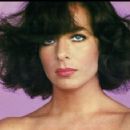


![Dario Argento - GQ Magazine Cover [Italy] (February 2021)](http://img3.bdbphotos.com/images/130x130/x/u/xuh8xfkxvn2yx2x.jpg?skj2io4l)


